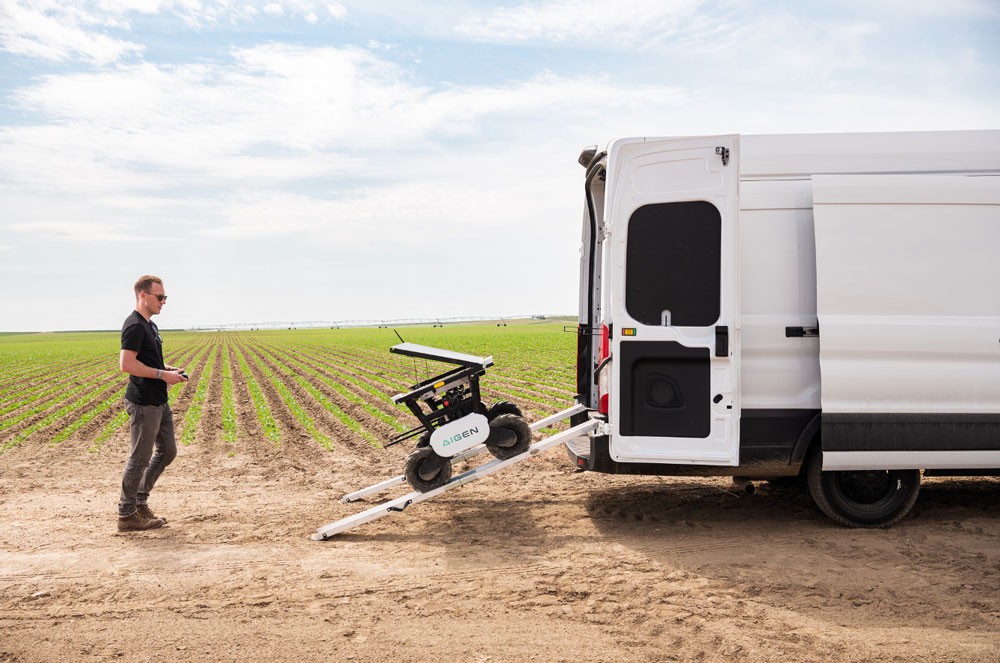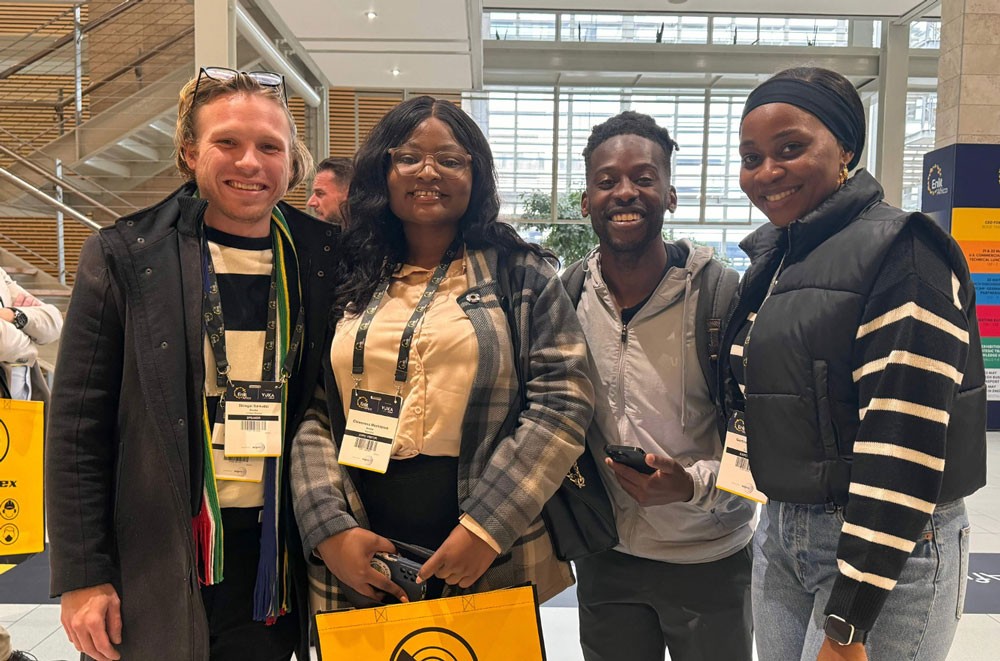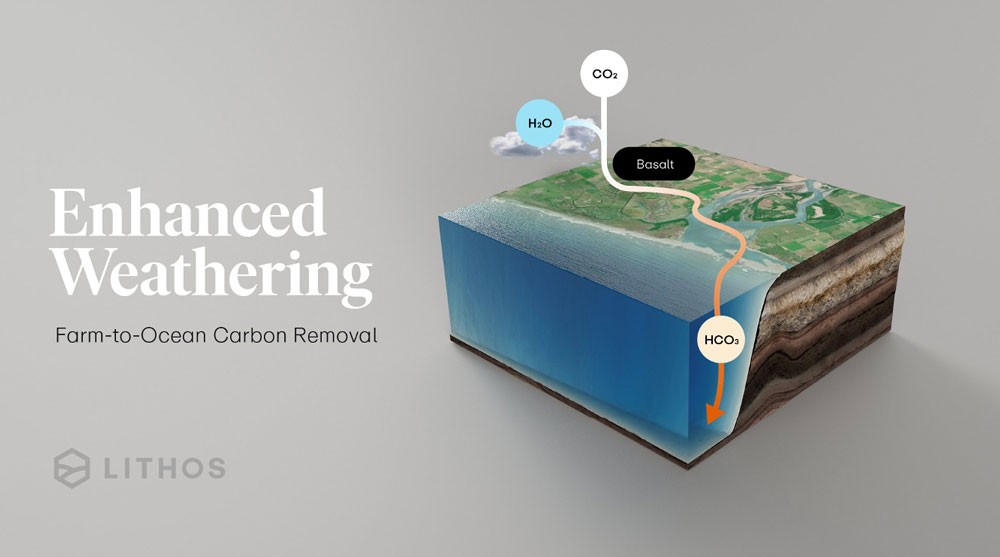How was this content?
Funding the future: AWS and IRCAI announce startups for the Compute for Climate Fellowship
Eight climate tech startups have been accepted into the second cohort of the Compute for Climate Fellowship in a bid to solve some of the greatest global issues. The first-of-its-kind program funds proof of concepts for new ideas using advanced cloud computing to tackle climate change.
From extreme weather affecting 4.5 billion people to food insecurity, and the monumental task of transitioning the entire global economy to clean energy, the climate crisis presents some of the toughest challenges facing humanity. Climate tech startups are building powerful solutions to address these issues, but the problems are so vast and complex that many must invent entirely new scientific and technological solutions. The challenge also means they often need to raise more money, invest more time in research and development (R&D), and gain access to advanced computing power.
To help climate tech startups accelerate R&D and create positive change, Amazon Web Services (AWS), the International Research Centre on Artificial Intelligence (IRCAI), and UNESCO created the Compute for Climate Fellowship joint initiative. Launched in 2023, it is the first global program to fund groundbreaking proof of concepts (POCs) that think big, use advanced cloud computing, and enable the world to more quickly address the climate crisis.
After a competitive selection process with applications spanning 21 countries and six continents, eight startups have been accepted into the second cohort of the Compute for Climate Fellowship. The finalists include entrepreneurs tackling issues such as biodiversity protection, fusion and clean energy, carbon removal, sustainable agriculture, weather modeling, and reducing fashion waste. Each company is building innovative solutions with the potential to advance the fight against climate change.

Fueling impact with the Compute for Climate Fellowship
In 2023 AWS awarded $1 million in AWS credits to the first cohort of Compute for Climate Fellows, which empowered startups of various sizes to expedite critical projects. This year, AWS will boost funding up to $1.5 million in total AWS credits for the second cohort of the Compute for Climate Fellowship. Each company will spend two to three months building a proof of concept (POC) and will have the opportunity to tap into technical expertise to help them uncover a bold new solution to the climate crisis.
Throughout the fellowship, IRCAI and AWS provide access to a wealth of technical resources to build their POCs, including:
- A team of advanced cloud computing, sustainability, and ethics experts
- Access to advanced computing services, such as high-performance computing (HPC) and quantum computing
- Cloud computing products and services that support AI, generative AI, and ML solutions
- AWS Activate credits to cover the cost of the POC build
In addition, all POCs will be designed under the guidelines of UNESCO's Ethics Impact Assessment for AI to check that they are built with safe, trustworthy technology.

Winners of the Compute for Climate Fellowship Cohort 2
- Aigen aims to regenerate earth through solar-powered, autonomous Element robots that offer herbicide-free crop protection and high-resolution insights. In their mission to promote sustainable agriculture, Aigen has plans to expand to multiple crops by 2025.
- Asoba is transforming energy management in Africa with an AI-driven platform to meet the continent's demand for clean energy and modern infrastructure. The platform optimizes distribution, enhances grid resilience, and supports a decentralized, sustainable smart-grid system.
- Brightband is democratizing weather and climate forecasting by providing accessible AI-driven tools to improve extreme weather predictions, aiming to save lives and reduce economic impacts estimated at $162 billion USD annually.
- Cosma uses underwater micro-drones and AI to deliver scalable, cost-effective environmental surveys for sustainable ocean management, providing high-resolution data for industries like offshore energy and environmental consulting.
- Matter Intelligence monitors the earth’s natural and built environments and tracks biodiversity using physics-based models. They use a constellation of hyperspectral and thermal imaging satellites combined with AI, ML, and HPC to improve resolution by 20 times.
- Lithos Carbon accelerates carbon capture in agricultural soils through enhanced rock weathering. Using AI-driven insights and industry integration, they deliver verified carbon credits and scalable climate solutions.
- Smartex enhances textile manufacturing through AI-powered fabric inspection and a digital management platform, enabling manufacturers to reduce waste, improve quality, and increase sustainability in production.
- Thea Energy develops fusion energy systems aimed at creating affordable, clean energy to decarbonize industries and communities.

Get involved in the 2025 Compute for Climate Fellowship
AWS and IRCAI are excited to share that applications for the third cohort of the Compute for Climate Fellowship in Q1 2025 will be opening soon. The program will continue to welcome applications from startups from around the world dedicated to creating climate solution across eight areas:
- Clean energy
- Low-carbon transportation
- Sustainable agriculture and food
- Circular economy/manufacturing/industry
- Sustainable buildings
- Greenhouse gas accounting and sustainability management
- Carbon removal
- Environment (water, pollution, biodiversity) and climate risk
Stay tuned for more details on this exciting opportunity by visiting this webpage. Updates will be shared soon on when applications open and how you can get involved in the 2025 Compute for Climate Fellowship cohort.


Lisbeth Kaufman
Lisbeth Kaufman is the Head of Climate Tech BD, Startups and Venture Capital at AWS. Her mission is to help the best Climate Tech startups succeed and reverse the global climate crisis. Her team has technical resources, go to market support and connections to help climate tech startups overcome obstacles and scale. Lisbeth was Founder and CEO of KitSplit.com, a sharing economy company called “the Airbnb of Cameras” by Forbes. Before she was a founder, Lisbeth worked on climate policy as an energy/environment/agriculture policy advisor in the U.S. Senate. There she built a first-of-its-kind energy efficiency retrofit program and wrote a clean energy bill for farmers that got passed into law. Lisbeth has a BA from Yale and an MBA from NYU Stern where she was a Dean's Scholar. As a mentor at Techstars and an EIR a Entrepreneurs Roundtable Accelerator Lisbeth helps climate tech founders with product, growth, fundraising, as well as making strategic connections to teams at AWS and Amazon.
How was this content?